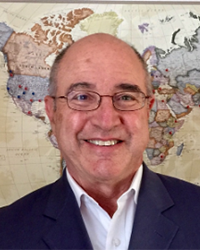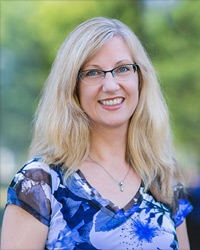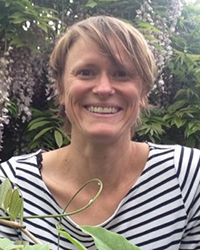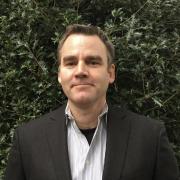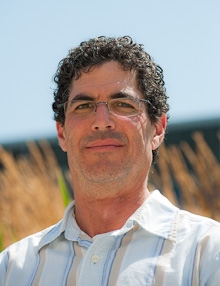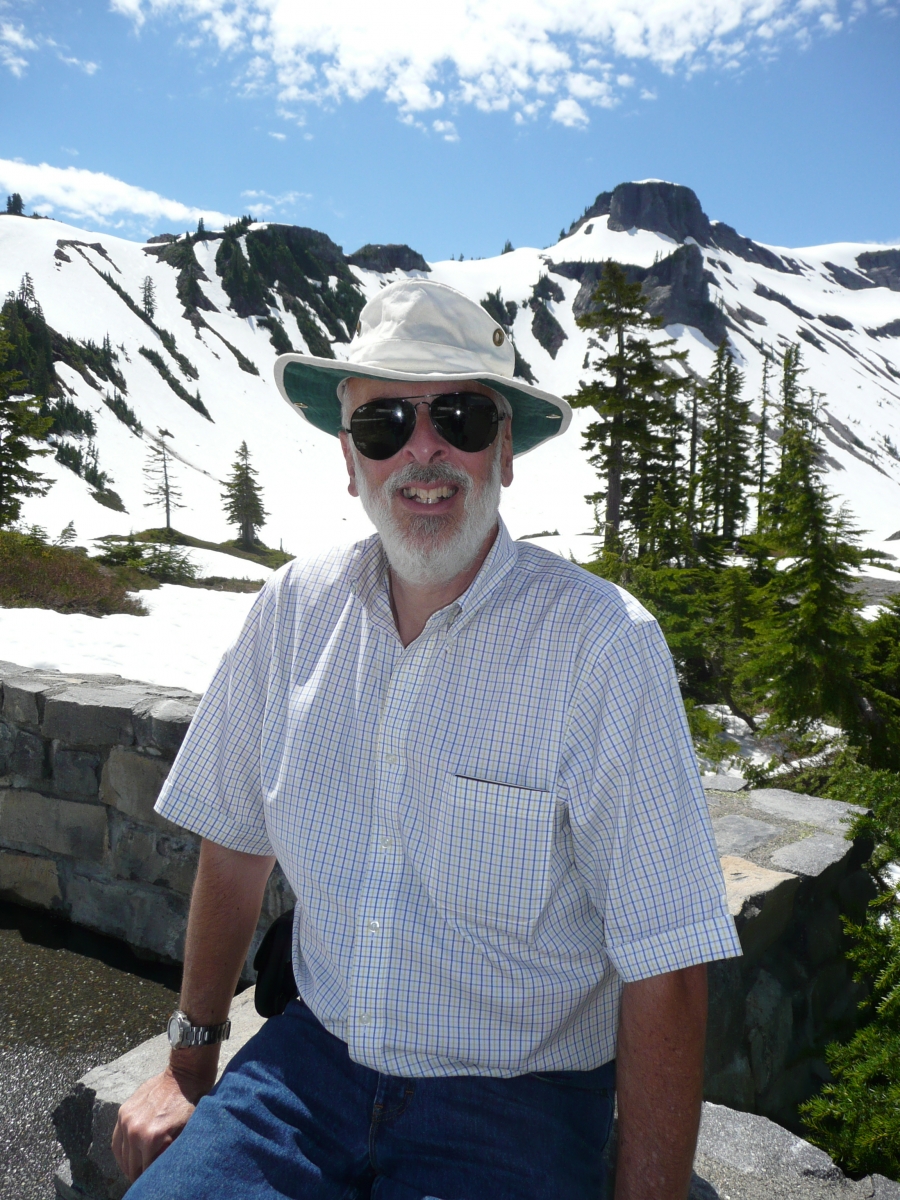Our Sustainability Fellowships alumni represent a huge variety of faculties and departments and share something in common: a valuable contribution to advancing sustainability education at UBC.
2023-24 Sustainability Fellows
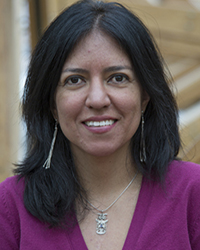 FARIDE UNDA
FARIDE UNDA
Department of Wood Science, Faculty of Forestry
Dr. Faride Unda (Department of Wood Science) developed a new module for a Forest Bioeconomy Science and Technology course on the development of new biobased materials using non-conventional feedstocks. Dr. Unda also looked to enhance the course’s sustainability focus by including a site visit to an industrial facility. Find out more about Dr. Unda’s work
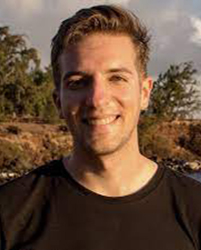 NOLAN BETT
NOLAN BETT
Department of Forest and Conservation Sciences, Faculty of Forestry
Dr. Nolan Bett (Department of Forest and Conservation Sciences) worked with Dr. Scott Hinch (Department of Forest and Conservation Sciences) to create a new field studies course in the Natural Resources Conservation program to enable students to learn fieldwork skills from local experts who are critical to their future employment in a low-barrier, high-accessibility environment. Find out more about Dr. Bett’s work.
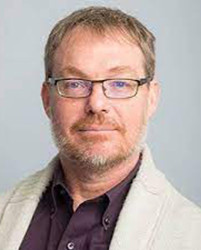 ROB VANWYNSBERGHE
ROB VANWYNSBERGHE
Department of Educational Studies, Faculty of Education
Dr. Rob VanWynsberghe (Department of Educational Studies) worked with Dr. Tonya Smith (Department of Forest Resources Management) to create a course with Líl̓wat First Nation, collaborating on the themes of Indigenous land-based pedagogies, food security and sovereignty, forest stewardship and restoration, Indigenous land rights, and ecology. Find out more about Dr. VanWynsberghe’s work.
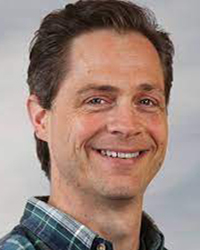 SCOTT HINCH
SCOTT HINCH
Department of Forest and Conservation Sciences, Faculty of Forestry
Dr. Scott Hinch (Department of Forest and Conservation Sciences) worked with Dr. Nolan Bett (Department of Forest and Conservation Sciences) to create a new field studies course in the Natural Resources Conservation program to enable students to learn fieldwork skills from local experts who are critical to their future employment in a low-barrier, high-accessibility environment. Find out more about Dr. Hinch’s work.
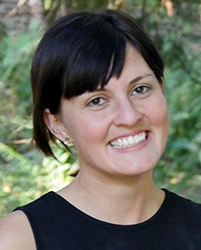 TONYA SMITH
TONYA SMITH
Department of Forest Resources Management, Faculty of Forestry
Dr. Tonya Smith (Department of Forest Resources Management) worked with Dr. Rob VanWynsberghe (Department of Educational Studies) to create a course with Líl̓wat First Nation, collaborating on the themes of Indigenous land-based pedagogies, food security and sovereignty, forest stewardship and restoration, Indigenous land rights, and ecology. Find out more about Dr. Smith’s work.
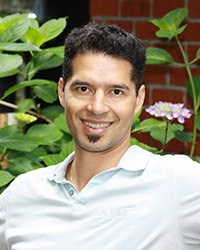 KAI CHAN
KAI CHAN
Institute for Resources, Environment and Sustainability, Faculty of Science
Dr. Chan (Institute for Resources, Environment and Sustainability) worked with Dr. Shannon Hagerman (Department of Forest Resources Management) and Dr. Gail Hochachka (Department of Forest Resources Management) to co-design a graduate course on climate engagement, empowering grad students to leverage a nuanced understanding of climate and human systems into bold action to confront the climate crisis. Kai also revamped an undergraduate course (ENVR 430) to enable undergraduate students to do the same for the climate-and-ecological crisis, while building community for science-based transformative action with over a dozen partner organizations. Find out more about Dr. Chan’s work.
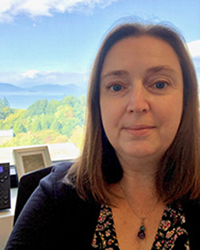 KIM SNOWDEN
KIM SNOWDEN
Institute for Gender, Race, Sexuality & Social Justice, Faculty of Arts
Dr. Snowden (Institute for Gender, Race, Sexuality and Social Justice) worked with the Director of the Social Justice Institute, Dr. Nora Angeles (School of Community and Regional Planning and the Institute for Gender, Race, Sexuality and Social Justice), to strengthen sustainability education at UBC through the integration of intersectional Justice, Equity, Diversity, Decolonization, Inclusion, and Indigenization (JEDDI) lens. They reviewed and revised all relevant GRSJ undergraduate and graduate courses to integrate sustainability-related learning objectives, readings, pedagogical approaches, assignments and class projects. They aimed to give students the tools to become leaders in social change and sustainability, increase visibility and collaboration in sustainability education across campus, and provide transformative learning opportunities through community-based learning and partnerships. Find out more about Dr. Snowden’s work.
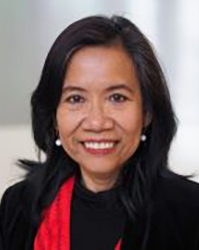 LEONORA ANGELES
LEONORA ANGELES
School of Community and Regional Planning (SCARP), Faculty of Applied Sciences
Dr. Angeles (School of Community and Regional Planning and the Institute for Gender, Race, Sexuality and Social Justice) worked with GRSJ Undergraduate Program Chair Dr. Kim Snowden (Institute for Gender, Race, Sexuality and Social Justice) to strengthen sustainability education at UBC through the integration of intersectional Justice, Equity, Diversity, Decolonization, Inclusion, and Indigenization (JEDDI) lens. They reviewed and revised all relevant GRSJ undergraduate and graduate courses to integrate sustainability-related learning objectives, readings, pedagogical approaches, assignments and class projects; and developed a new GRSJ 309 course on Intersectional Approaches in Thinking Sustainability Through JEDDII. Find out more about Dr. Angeles’ work.
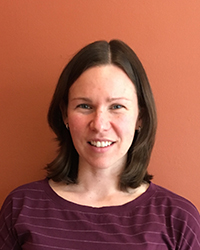 LINDSAY ROGERS
LINDSAY ROGERS
BioChemistry and Molecular Biology, Faculty of Medicine
Dr. Rogers (Department of Biochemistry and Molecular Biology) worked in collaboration with Dr. Scott (Department of Curriculum and Pedagogy), Emerging Media Lab and UBC Studios on a project called Climate Change Education through Immersive Media: Educating for Sustainability in Multi-Modal Ways. The team aimed to create an interactive map-based platform to engage students in local climate-related content. Prototyping of this platform was supported by an existing Theatre and Film course and the development was supported by undergraduate students and staff at Emerging Media Lab. This project also aimed to create media highlighting local climate research, stories and experiences. Media production was be supported by UBC Studios and in parallel, a climate education seminar series was hosted by the Faculty of Education. This project supports curriculum within UBC courses in the Faculty of Education and the Faculty of Medicine. Find out more about Dr. Rogers’ work.
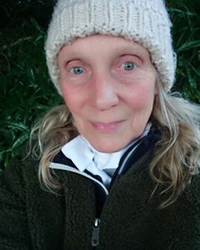 SANDRA SCOTT
SANDRA SCOTT
Curriculum and Pedagogy, Faculty of Education
Dr. Scott (Department of Curriculum and Pedagogy) worked in collaboration with Dr. Rogers (Department of Biochemistry and Molecular Biology), Emerging Media Lab and UBC Studios on a project called Climate Change Education through Immersive Media: Educating for Sustainability in Multi-Modal Ways. The team aimed to create an interactive map-based platform to engage students in local climate-related content. Prototyping of this platform was supported by an existing Theatre and Film course and the development was supported by undergraduate students and staff at Emerging Media Lab. This project also aimed to create media highlighting local climate research, stories and experiences. Media production was supported by UBC Studios and in parallel a climate education seminar series was hosted by the Faculty of Education. This project supports curriculum within UBC courses in the Faculty of Education and the Faculty of Medicine. Find out more about Dr. Scott’s work.
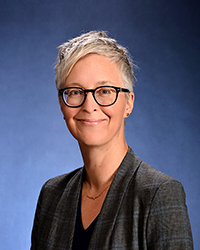 SHANNON HAGERMAN
SHANNON HAGERMAN
Forest Resources Management, Faculty of Forestry
Dr. Hagerman (Department of Forest Resources Management) worked with Dr. Kai Chan (Institute for Resources, Environment and Sustainability) and Dr. Gail Hochachka (Department of Forest Resources Management) to co-design and trial a new 3-credit graduate seminar course as a proof of concept for future course offerings. This transdisciplinary course unpacks some of the systemic socio-political complexities of making progress toward meaningful climate action (despite the longstanding abundance of scientific evidence), and through case studies explores potential pathways and approaches for engaging diverse constituents (e.g. decision-makers, communities, governments, public) in ways that can support individual and collective action. Find out more about Dr. Hagerman’s work.
2022-23 SUSTAINABILITY FELLOWS
Gabriel Potvin, Faculty of Applied Science
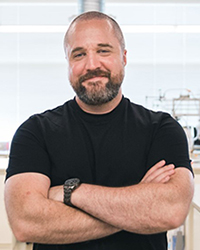
Dr. Gabriel Potvin (Department of Chemical and Biological Engineering) worked with Dr. Tamara Etmannski (Department of Civil Engineering) on the design and implementation of modern multidisciplinary engineering economics modules, that allowed students to quantify, assess, and discuss environmental and social costs of engineering projects, and incorporate these considerations in engineering decision making. Modules included topics such as measuring a project’s impacts on climate change and biodiversity loss; ecological accounting; proxy metrics for social impacts; circular economy approach to costing; cultural capital valuation, and ethical difficulties when viewing or designing engineering projects through a sustainability lens.
Ian McKendry, Faculty of Arts
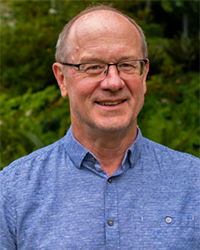
Dr. Ian McKendry (Department of Geography) and Dr. Roland Stull (Department of Earth, Ocean and Atmospheric Sciences) developed a new course proposal: ATSC 413 Forest Fire Weather and Climate. This course, designed for science students, focuses on large-scale synoptic weather as it affects fire behaviour.
Kerry Renwick, Faculty of Education
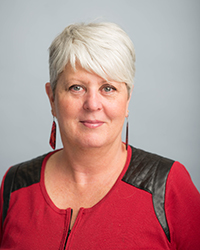
Dr. Kerry Renwick (Department of Curriculum & Pedagogy) worked with Dr. Silvia Bartolic (Department of Sociology) to create a new certificate program on Sustainability and Family. The project aimed to build an appreciation of sustainability in the context of human ecology and everyday living that contributed to sustainable practices. The goal was to develop 4 new courses - one that was theory based (sustainability in family), and three that were experiential learning based (sustainability related to food, clothing and resources).
Peter Berman, Faculty of Medicine
Dr. Peter Berman (School of Population and Public Health) collaborated with faculty colleagues Dr. Veena Sriram (School of Public Policy and Global Affairs) and Milind Kandlikar to introduce a sustainability perspective into SPPH 481D, a new course on global health systems and policy. This included new collaborative teaching cases on sustainability with partners in the Philippines and BC.
Robert Kozak, Faculty of Forestry
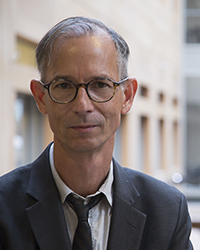
Dr. Robert Kozak (Department of Office of The Dean) worked with Dr. Stephen Sheppard (Department of Forest Resources Management) to co-design and test a pilot 3-credit field course as a proof of concept for future course offerings aimed initially at 3rd/4th year students from the Bachelor of Urban Forestry and the Bachelor of Wood Products Processing programs. In this interdisciplinary field course students will work together to help local residents and youth design and install small climate action projects to tackle the climate emergency in their own neighbourhoods.
Roland Stull, Faculty of Science
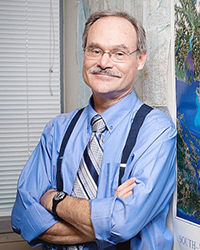
Dr. Roland Stull (Department of Earth, Ocean and Atmospheric Sciences) and Dr. Ian McKendry (Department of Geography) developed a new course proposal: ATSC 413 Forest Fire Weather and Climate. This course, designed for science students, focuses on large-scale synoptic weather as it affects fire behaviour.
Silvia Bartolic, Faculty of Arts
Dr. Silvia Bartolic (Department of Sociology) worked with Dr. Kerry Renwick (Department of Curriculum & Pedagogy) to create a new certificate program on Sustainability and Family. The project aimed to build an appreciation of sustainability in the context of human ecology and everyday living that contributed to sustainable practices. The goal was to develop 4 new courses - one that was theory-based (sustainability in the family), and three that were experiential learning-based (sustainability related to food, clothing and resources).
Stephen Sheppard, Faculty of Forestry
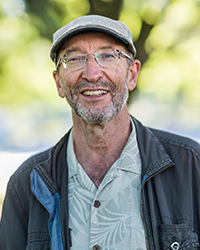
Dr. Stephen Sheppard (Department of Forest Resources Management) worked with Dr. Rob Kozak (Department of Office of The Dean) to co-design and test a pilot 3-credit field course as a proof of concept for future course offerings aimed initially at 3rd/4th year students from the Bachelor of Urban Forestry and the Bachelor of Wood Products Processing programs. In this interdisciplinary field course, students will work together to help local residents and youth design and install small climate action projects to tackle the climate emergency in their own neighbourhoods. Find more about Dr. Sheppard’s work.
Tamara Etmannski, Faculty of Applied Science
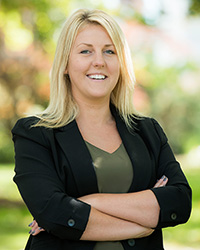 Dr. Tamara Etmannski (Department of Civil Engineering) worked with Dr. Gabriel Potvin on the design and implementation of modern multidisciplinary engineering economics modules, that allowed students to quantify, assess, and discuss environmental and social costs of engineering projects, and incorporate these considerations in engineering decision making. Modules included topics such as measuring a project’s impacts on climate change and biodiversity loss; ecological accounting; proxy metrics for social impacts; circular economy approach to costing; cultural capital valuation, and ethical difficulties when viewing or designing engineering projects through a sustainability lens.
Dr. Tamara Etmannski (Department of Civil Engineering) worked with Dr. Gabriel Potvin on the design and implementation of modern multidisciplinary engineering economics modules, that allowed students to quantify, assess, and discuss environmental and social costs of engineering projects, and incorporate these considerations in engineering decision making. Modules included topics such as measuring a project’s impacts on climate change and biodiversity loss; ecological accounting; proxy metrics for social impacts; circular economy approach to costing; cultural capital valuation, and ethical difficulties when viewing or designing engineering projects through a sustainability lens.
Veena Sriram, Faculty of Arts
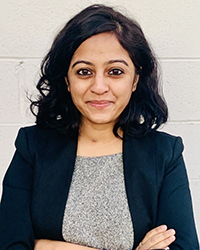
Dr. Veena Sriram (School of Public Policy and Global Affairs) collaborated with Dr. Peter Berman (School of Population and Public Health) and Dr. Milind Kandlikar to introduce a sustainability perspective into SPPH 481D, a new course on global health systems and policy. This included new collaborative teaching cases on sustainability with partners in the Philippines and BC.
2021-22 SUSTAINABILITY FELLOWS
Allison Earl, Faculty of Applied Science
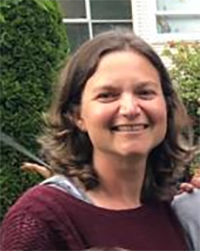
Dr. Allison Earl (School of Architecture and Landscape Architecture, and Department of Educational Studies), worked with Dr. Maggie Low (School of Community and Regional Planning) to facilitate learning about concepts of urban, participatory and Indigenous planning for teacher candidates in the sustainability cohort at UBC’s Faculty of Education.
Ian McKendry, Faculty of Arts

Dr. Ian McKendry (Department of Geography) and Dr. Roland Stull (Department of Earth, Ocean and Atmospheric Sciences) developed a new course proposal: ATSC 413 Forest Fire Weather and Climate. This course, designed for science students, focuses on large-scale synoptic weather as it affects fire behaviour.
Jessica Dempsey, Faculty of Arts
Dr. Jessica Dempsey (Department of Geography) worked with Dr. Tara Ivanochko (Department of Earth, Ocean and Atmospheric Sciences) on a project to bring together students, faculty and staff, focusing on climate change to develop a new 18-credit interdisciplinary climate-themed certificate, the Certificate in Climate Studies and Action.
Kerry Renwick, Faculty of Education

Dr. Kerry Renwick (Department of Curriculum & Pedagogy) worked with Dr. Silvia Bartolic (Department of Sociology) to create a new certificate program on Sustainability and Family. The project aimed to build an appreciation of sustainability in the context of human ecology and everyday living that contributed to sustainable practices. The goal was to develop 4 new courses - one that was theory based (sustainability in family), and three that were experiential learning based (sustainability related to food, clothing and resources).
Maggie Low, Faculty of Applied Science
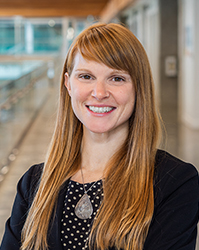
Dr. Maggie Low (School of Community and Regional Planning) worked with Dr. Allison Earl (School of Architecture and Landscape Architecture) to facilitate learning about concepts of urban, participatory and Indigenous planning for teacher candidates in the sustainability cohort at UBC’s Faculty of Education.
Peter Berman, Faculty of Medicine
Dr. Peter Berman (School of Population and Public Health) collaborated with faculty colleagues Dr. Veena Sriram (School of Public Policy and Global Affairs) and Milind Kandlikar to introduce a sustainability perspective into SPPH 481D, a new course on global health systems and policy. This included new collaborative teaching cases on sustainability with partners in the Philippines and BC.
Robert Kozak, Faculty of Forestry

Dr. Robert Kozak (Department of Office of The Dean) worked with Dr. Stephen Sheppard (Department of Forest Resources Management) to co-design and test a pilot 3-credit field course as a proof of concept for future course offerings aimed initially at 3rd/4th year students from the Bachelor of Urban Forestry and the Bachelor of Wood Products Processing programs. In this interdisciplinary field course students will work together to help local residents and youth design and install small climate action projects to tackle the climate emergency in their own neighbourhoods.
Roland Stull, Faculty of Science

Dr. Roland Stull (Department of Earth, Ocean and Atmospheric Sciences) and Dr. Ian McKendry (Department of Geography) developed a new course proposal: ATSC 413 Forest Fire Weather and Climate. This course, designed for science students, focuses on large-scale synoptic weather as it affects fire behaviour.
Silvia Bartolic, Faculty of Arts
Dr. Silvia Bartolic (Department of Sociology) worked with Dr. Kerry Renwick (Department of Curriculum & Pedagogy) to create a new certificate program on Sustainability and Family. The project aimed to build an appreciation of sustainability in the context of human ecology and everyday living that contributed to sustainable practices. The goal was to develop 4 new courses - one that was theory-based (sustainability in the family), and three that were experiential learning-based (sustainability related to food, clothing and resources).
Stephen Sheppard, Faculty of Forestry

Dr. Stephen Sheppard (Department of Forest Resources Management) worked with Dr. Rob Kozak (Department of Office of The Dean) to co-design and test a pilot 3-credit field course as a proof of concept for future course offerings aimed initially at 3rd/4th year students from the Bachelor of Urban Forestry and the Bachelor of Wood Products Processing programs. In this interdisciplinary field course, students will work together to help local residents and youth design and install small climate action projects to tackle the climate emergency in their own neighbourhoods. Find more about Dr. Sheppard’s work.
Tara Ivanochko, Faculty of Science
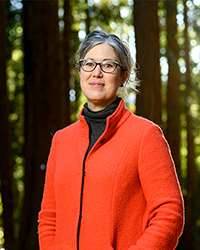
Dr. Tara Ivanochko (Department of Earth, Ocean and Atmospheric Sciences) worked with Dr. Jessica Dempsey (Department of Geography) on a project to bring together students, faculty and staff, focusing on climate change to develop a new 18-credit interdisciplinary climate-themed certificate, the Certificate in Climate Studies and Action.
Veena Sriram, Faculty of Arts

Dr. Veena Sriram (School of Public Policy and Global Affairs) collaborated with Dr. Peter Berman (School of Population and Public Health) and Dr. Milind Kandlikar to introduce a sustainability perspective into SPPH 481D, a new course on global health systems and policy. This included new collaborative teaching cases on sustainability with partners in the Philippines and BC.
2020-21 SUSTAINABILITY FELLOWS
Allison Earl, Faculty of Applied Science

Dr. Allison Earl (School of Architecture and Landscape Architecture, and Department of Educational Studies), worked with Dr. Maggie Low (School of Community and Regional Planning) to facilitate learning about concepts of urban, participatory and Indigenous planning for teacher candidates in the sustainability cohort at UBC’s Faculty of Education.
Amanda Giang, Faculty of Science and Faculty of Applied Science
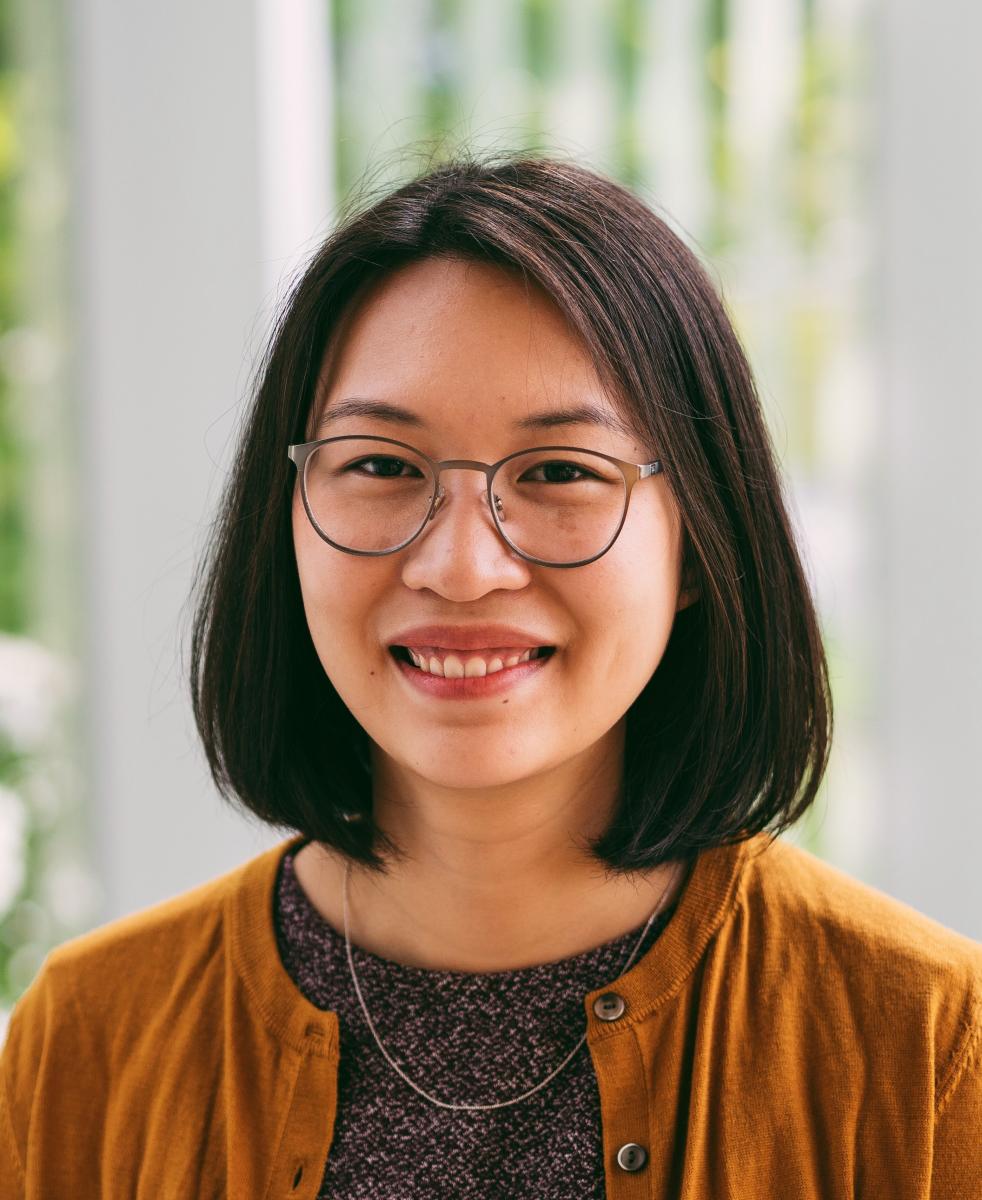
Dr. Amanda Giang (Institute for Resources, Environment and Sustainability and Department of Mechanical Engineering) worked with Dr. Naomi Zimmerman (Department of Mechanical Engineering) to explore how technology can be used to facilitate interdisciplinary collaboration on air pollution, climate, and energy issues.
Bob Woollard, Faculty of Medicine
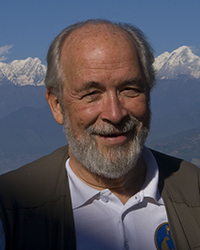
Dr. Bob Woollard (Department of Family Practice) worked with Farah Shroff (Department of Family Practice) to develop a new interdisciplinary course on sustainability and health.
Derek Gladwin, Faculty of Education
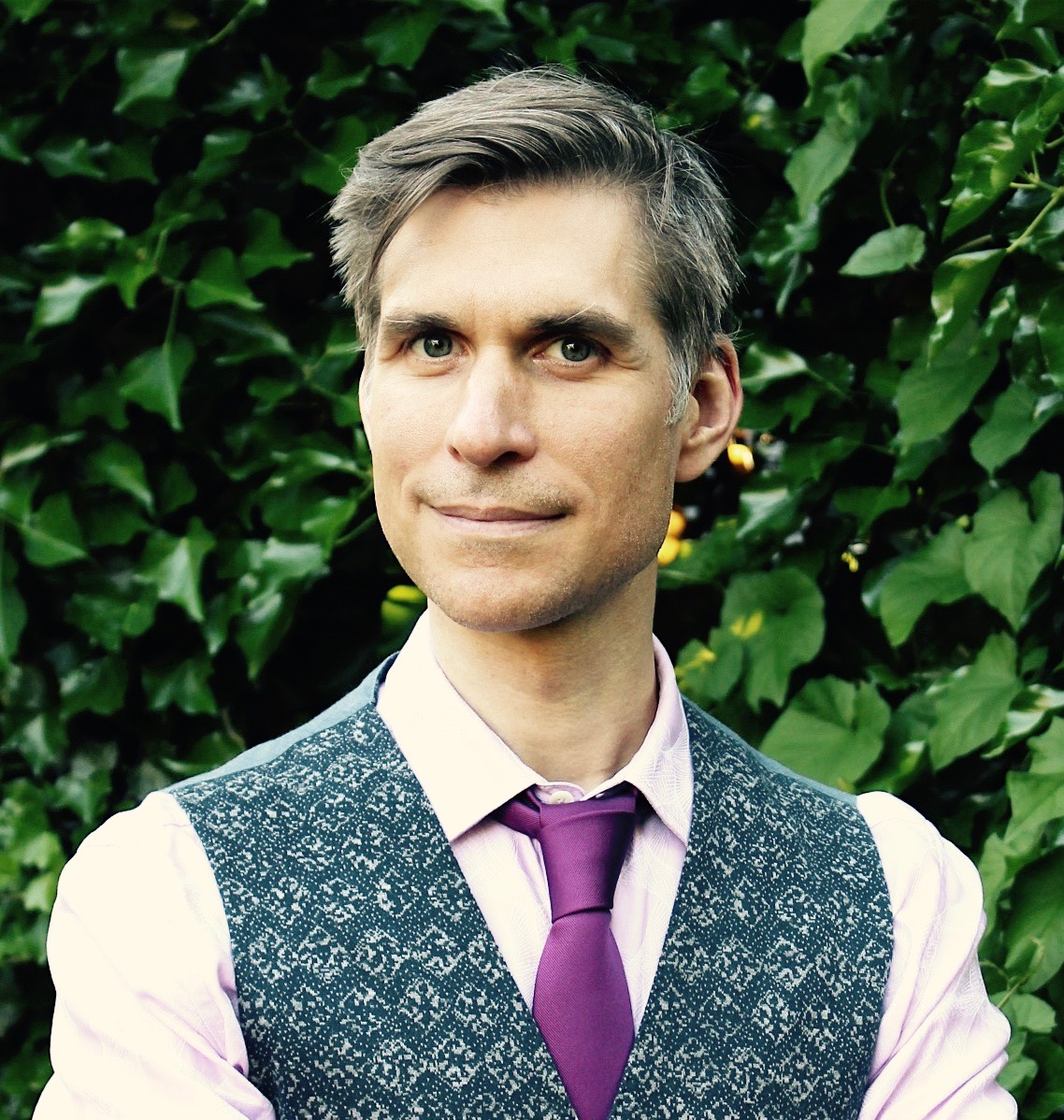
Dr. Derek Gladwin (Department of Language & Literacy Education) worked with Dr. Kedrick James (Department of Language and Literacy Education) to develop a new course titled Environmental Literacy for teacher candidates in the Bachelor of Education (B.Ed) program.
Farah Shroff, Faculty of Medicine
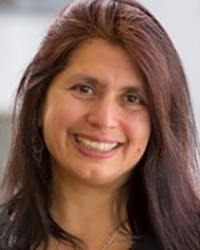
Dr. Farah Shroff (Department of Family Practice) worked with Dr. Bob Woollard (Department of Family Practice) to develop a new interdisciplinary course on sustainability and health.
Jessica Dempsey, Faculty of Arts
Dr. Jessica Dempsey (Department of Geography) worked with Dr. Tara Ivanochko (Department of Earth, Ocean and Atmospheric Sciences) on a project to bring together students, faculty and staff, focusing on climate change to develop a new 18-credit interdisciplinary climate-themed certificate, the Certificate in Climate Studies and Action.
Juanita Sundberg, Faculty of Arts
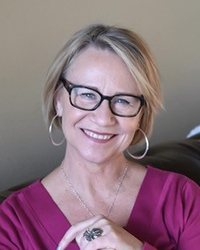
Dr. Juanita Sundberg (Department of Geography) worked with Michele Koppes (Department of Geography) to develop a new course on Rethinking Sustainability in the Anthropocene.
Kedrick James, Faculty of Education
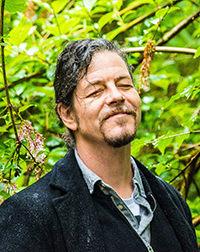
Dr. Kedrick James (Department of Language and Literacy Education) worked with Dr. Derek Gladwin (Department of Language and Literacy Education) to develop a new course titled Environmental Literacy for teacher candidates in the Bachelor of Education (B.Ed) program.
Maggie Low, Faculty of Applied Science

Dr. Maggie Low (School of Community and Regional Planning) worked with Dr. Allison Earl (School of Architecture and Landscape Architecture) to facilitate learning about concepts of urban, participatory and Indigenous planning for teacher candidates in the sustainability cohort at UBC’s Faculty of Education.
Michele Koppes, Faculty of Arts
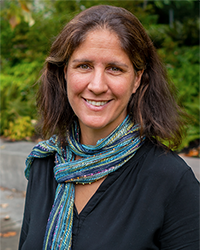
Dr. Michele Koppes (Department of Geography) worked with Dr. Juanita Sundberg (Department of Geography) to develop a new course on Rethinking Sustainability in the Anthropocene.
Naomi Zimmerman, Faculty of Applied Science

Dr. Naomi Zimmerman (Department of Mechanical Engineering) worked with Amanda Giang (Institute for Resources, Environment and Sustainability and Department of Mechanical Engineering) to bring cross-course collaboration into her Air Pollution, Technology and Society course (MECH 410U).
Tara Ivanochko, Faculty of Science

Dr. Tara Ivanochko (Department of Earth, Ocean and Atmospheric Sciences) worked with Dr. Jessica Dempsey (Department of Geography) on a project to bring together students, faculty and staff, focusing on climate change to develop a new 18-credit interdisciplinary climate-themed certificate, the Certificate in Climate Studies and Action
2019-20 SUSTAINABILITY FELLOWS
Alexander Dick, Faculty of Arts
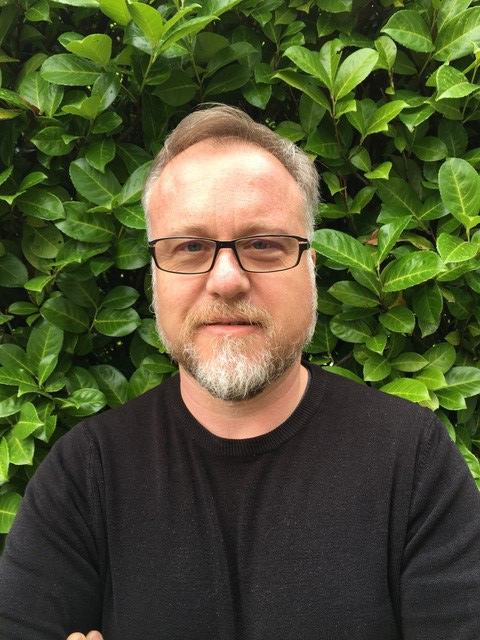
Dr. Alexander Dick (Department of English Language and Literatures) worked with Dr. Derek Gladwin (Department of Language & Literacy Education) to design a new undergraduate course between the faculties of Arts and Education titled Environmental Humanities and Sustainability Education.
Amanda Giang, Faculty of Science and Faculty of Applied Science

Dr. Amanda Giang (Institute for Resources, Environment and Sustainability and Department of Mechanical Engineering) worked with Dr. Naomi Zimmerman (Department of Mechanical Engineering) to explore how technology can be used to facilitate interdisciplinary collaboration on air pollution, climate, and energy issues.
Bob Woollard, Faculty of Medicine

Dr. Bob Woollard (Department of Family Practice) worked with Farah Shroff (Department of Family Practice) to develop a new interdisciplinary course on sustainability and health.
Derek Gladwin, Faculty of Education

Dr. Derek Gladwin (Department of Language & Literacy Education) worked with Dr. Alexander Dick (Department of English Language and Literatures) to design a new undergraduate course between the faculties of Arts and Education titled Environmental Humanities and Sustainability Education.
Farah Shroff, Faculty of Medicine

Dr. Farah Shroff (Department of Family Practice) worked with Dr. Bob Woollard (Department of Family Practice) to develop a new interdisciplinary course on sustainability and health.
Juanita Sundberg, Faculty of Arts

Dr. Juanita Sundberg (Department of Geography) worked with Michele Koppes (Department of Geography) to develop a new course on Rethinking Sustainability in the Anthropocene.
Kathy Harrison, Faculty of Arts
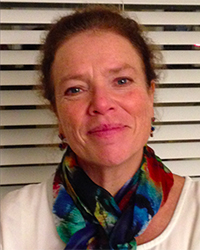
Dr. Kathy Harrison (Department of Political Science) worked with Tom Scholte (Department of Theatre & Film) on a new Climate Theatre course that integrates social science and performing arts.
Michele Koppes, Faculty of Arts

Dr. Michele Koppes (Department of Geography) worked with Dr. Juanita Sundberg (Department of Geography) to develop a new course on Rethinking Sustainability in the Anthropocene.
Naomi Zimmerman, Faculty of Applied Science

Dr. Naomi Zimmerman (Department of Mechanical Engineering) worked with Amanda Giang (Institute for Resources, Environment and Sustainability and Department of Mechanical Engineering) to bring cross-course collaboration into her Air Pollution, Technology and Society course (MECH 410U).
Tom Scholte, Faculty of Arts
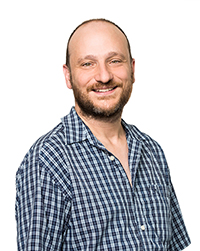
Tom Scholte (Department of Theatre & Film) worked with Dr. Kathy Harrison (Department of Political Science) on a new Climate Theatre course that integrates social science and performing arts.
Vanessa De Oliveira Andreotti, Faculty of Education
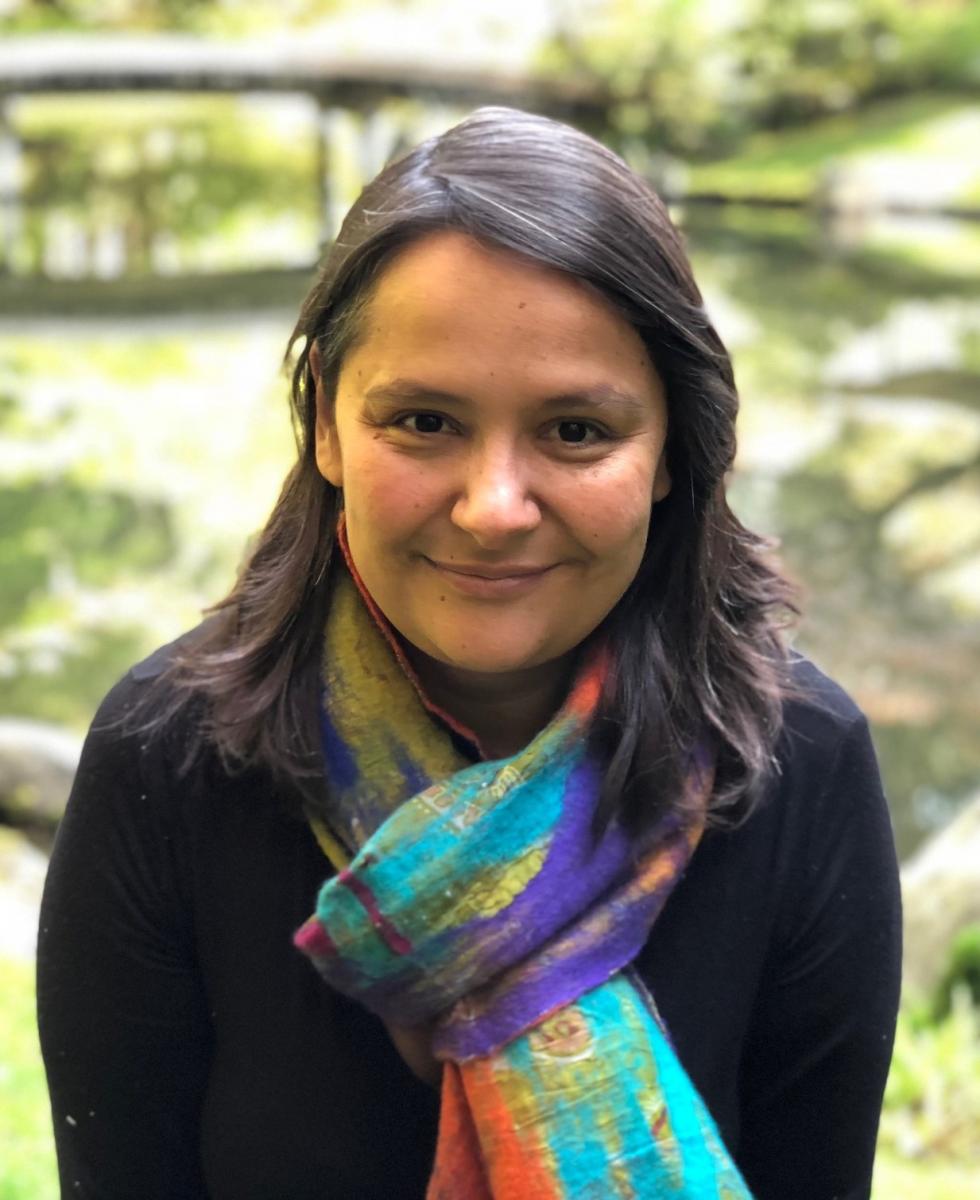
Dr. Vanessa Andreotti (Department of Educational Studies) worked with Dr. Will Valley (Faculty of Land and Food Systems) to develop a EarthCARE sustainability residency, week-long land-based experiential learning course.
Will Valley, Faculty of Land and Food Systems
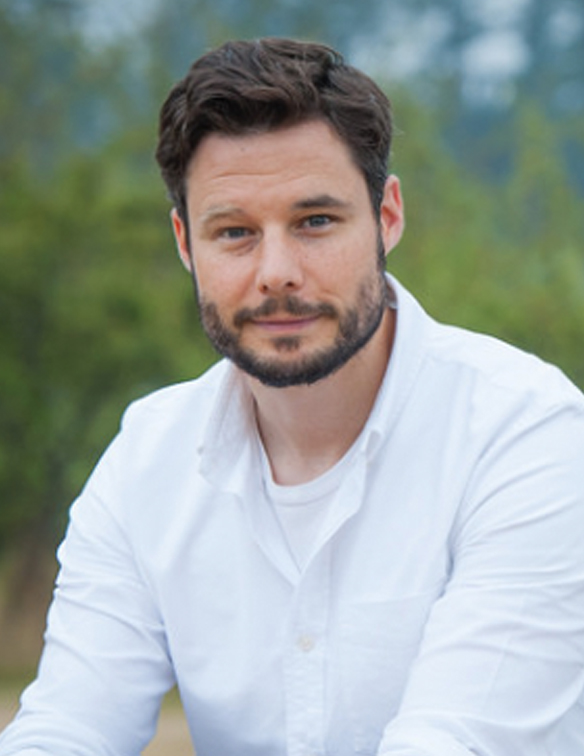
Dr. Will Valley (Faculty of Land and Food Systems) worked with Dr. Vanessa Andreotti (Department of Educational Studies) to develop a EarthCARE sustainability residency, week-long land-based experiential learning course.
2018-19 SUSTAINABILITY FELLOWS
Alexander Dick, Faculty of Arts

Dr. Alexander Dick (Department of English Language and Literatures) worked with Dr. Derek Gladwin (Department of Language & Literacy Education) to design a new undergraduate course between the faculties of Arts and Education titled Environmental Humanities and Sustainability Education.
Amanda Giang, Faculty of Science and Faculty of Applied Science

Dr. Amanda Giang (Institute for Resources, Environment and Sustainability and Department of Mechanical Engineering) worked with Dr. Naomi Zimmerman (Department of Mechanical Engineering) to explore how technology can be used to facilitate interdisciplinary collaboration on air pollution, climate, and energy issues.
Derek Gladwin, Faculty of Education

Dr. Derek Gladwin (Department of Language & Literacy Education) worked with Dr. Alexander Dick (Department of English Language and Literatures) to design a new undergraduate course between the faculties of Arts and Education titled Environmental Humanities and Sustainability Education.
Gabriel Potvin, Faculty of Applied Science

Dr. Gabriel Potvin (Department of Chemical and Biological Engineering) worked with Dr. Jenny Peterson (Department of Political Science) to create an innovative, interdisciplinary course that brings together political science/international relations and engineering students to explore the application of technical engineering solutions to humanitarian issues.
Geraldine Pratt, Faculty of Arts
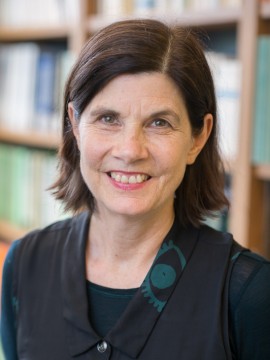
Dr. Geraldine Pratt (Department of Geography) worked with Dr. Joe Dahmen (School of Architecture and Landscape Architecture) to build the Platform for Local Material Ecologies to provide a contemplation space at the center of the UBC campus for reflection and meditation.
Jenny Peterson, Faculty of Arts
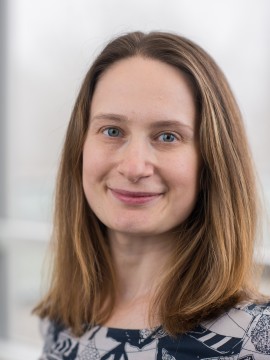
Dr. Jenny Peterson (Department of Political Science) worked with Dr. Gabriel Potvin (Department of Chemical and Biological Engineering) to create an innovative, interdisciplinary course that brings together political science/international relations and engineering students to explore the application of technical engineering solutions to humanitarian issues.
Joe Dahmen, Faculty of Applied Science
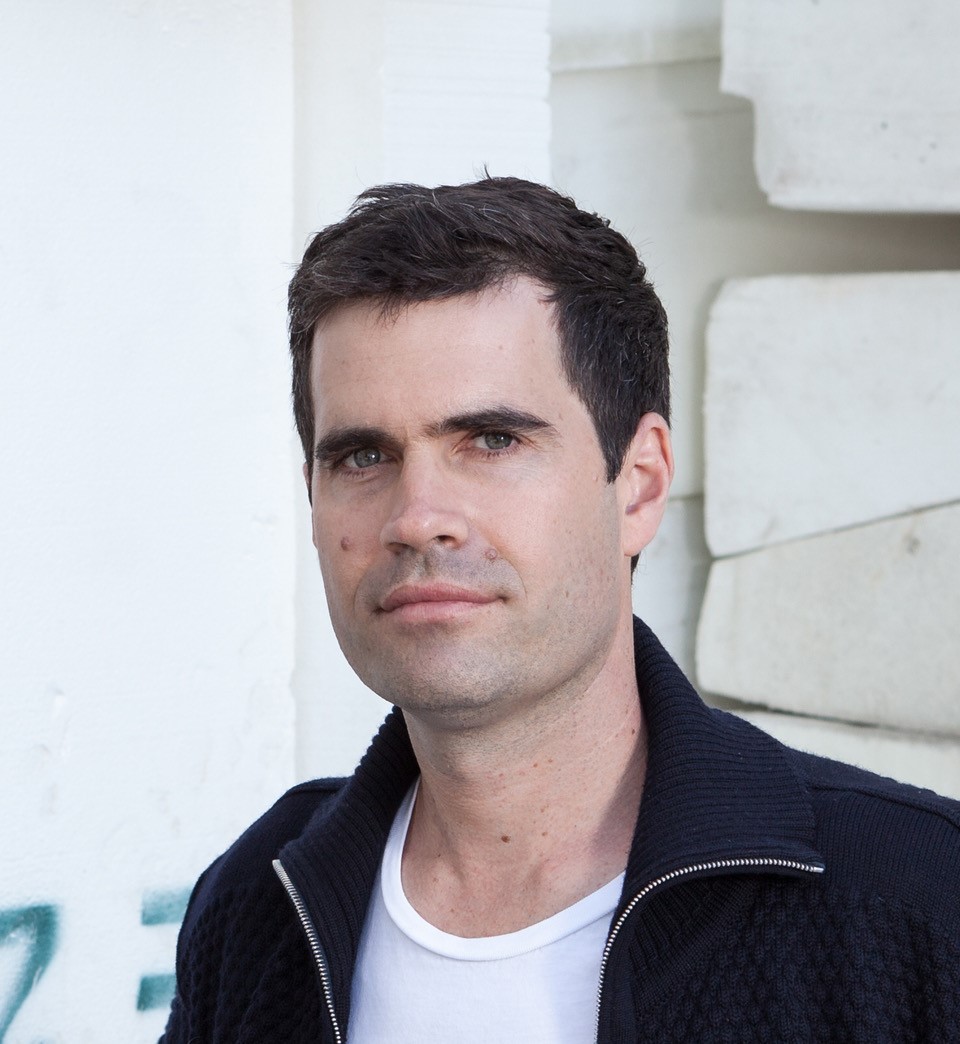
Joe Dahmen (School of Architecture and Landscape Architecture) worked with Dr. Geraldine Pratt (Department of Geography) to build the Platform for Local Material Ecologies to provide a contemplation space at the center of the UBC campus for reflection and meditation.
Peter Klein, Faculty of Arts
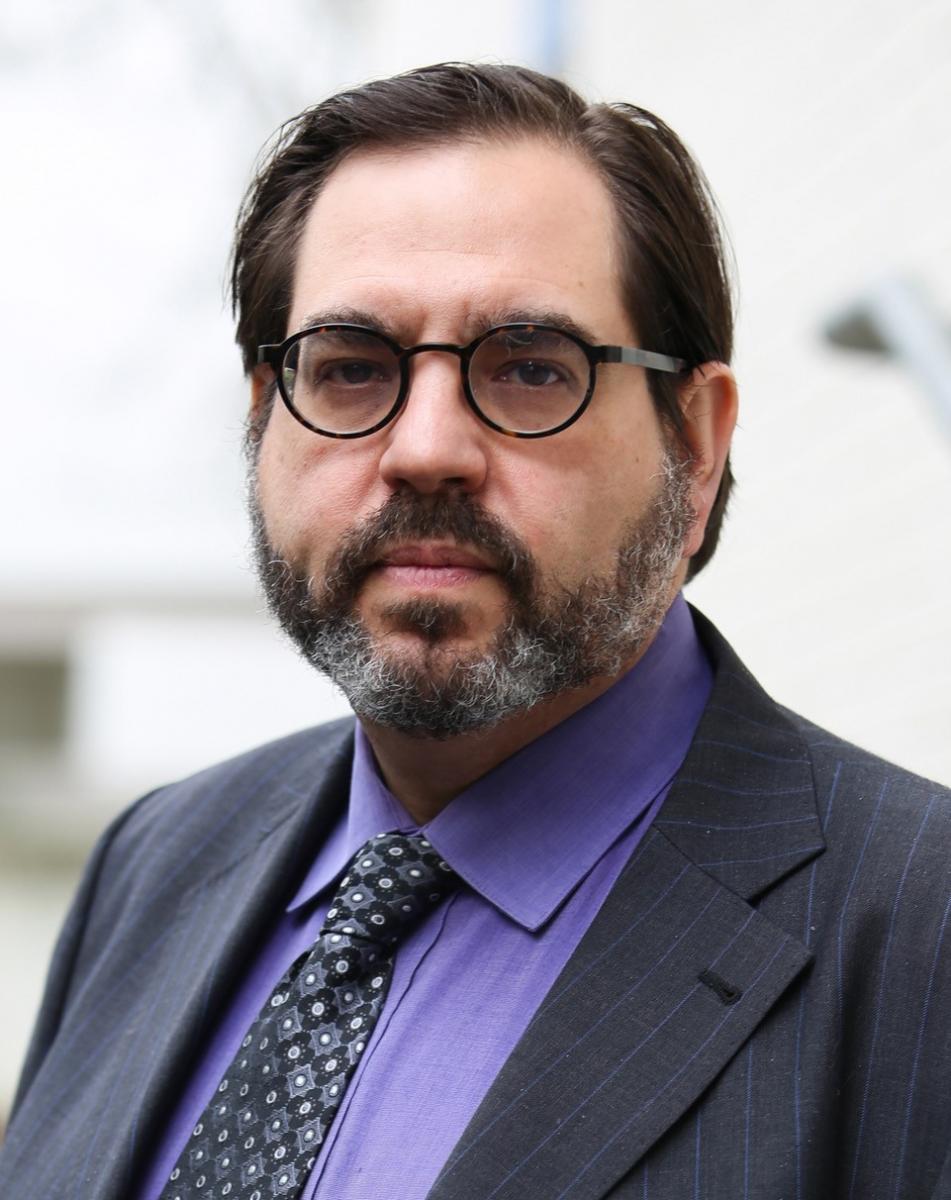
Dr. Peter Klein (School of Journalism, Writing and Media) worked with Dr. Simon Donner (Department of Geography) to revise International Reporting (JOUR 555A) to study the challenges of reporting on sustainability and produce a collaborative journalism project and academic investigation into marine supply chains.
Simon Donner, Faculty of Arts
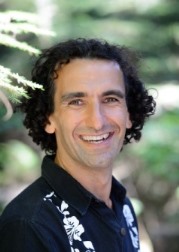
Dr. Simon Donner (Department of Geography) worked with Dr. Peter Klein (School of Journalism, Writing and Media) to revise International Reporting (JOUR 555A) to study the challenges of reporting on sustainability and produce a collaborative journalism project and academic investigation into marine supply chains.
Terre Satterfield, Faculty of Science
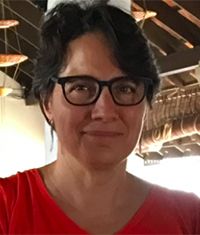
Dr. Terre Satterfield (Institute for Resources, Environment and Sustainability) worked with Dr. Amanda Giang (Institute for Resources, Environment and Sustainability and Department of Mechanical Engineering) to revise an Energy, Environment and Society course in developing six new case studies examining contemporary local and global energy debates.
Vanessa de Oliveira Andreotti, Faculty of Education

Dr. Vanessa Andreotti (Department of Educational Studies) worked with Dr. Will Valley (Faculty of Land and Food Systems) to develop a EarthCARE sustainability residency, week-long land-based experiential learning course.
Will Valley, Faculty of Land and Food Systems

Dr. Will Valley (Faculty of Land and Food Systems) worked with Dr. Vanessa Andreotti (Department of Educational Studies) to develop a EarthCARE sustainability residency, week-long land-based experiential learning course.
2017-18 SUSTAINABILITY FELLOWS
Hannah Wittman, Faculty of Land and Food Systems
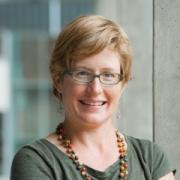
Dr. Hannah Wittman (Faculty of Land and Food Systems) led a team of students and faculty on an initiative to create and deliver a Sustainable Food Systems Minor available to undergraduate students across UBC, using the UBC campus as a Living Laboratory.
Patrick Robertson, Faculty of Education
Patrick Robertson (Department of Curriculum & Pedagogy) worked with Dr. Rob VanWynsberghe Department of Educational Studies) to develop the Sustainability Learning Pathway in Teacher Education at UBC.
Rob VanWynsberghe, Faculty of Education
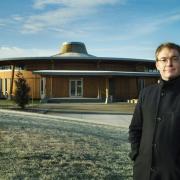
Dr. Rob VanWynsberghe (Department of Educational Studies) worked with Patrick Robertson (Department of Curriculum & Pedagogy) to develop the Sustainability Learning Pathway in Teacher Education at UBC.
2016-17 SUSTAINABILITY FELLOWS
David Tindall, Faculty of Arts
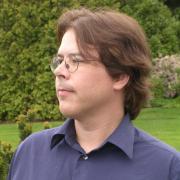
Dr. David Tindall (Department of Sociology) worked with Dr. Neil Guppy (Department of Sociology) on integrating more content on the environment and sustainability into introductory sociology.
Hannah Wittman, Faculty of Land and Food Systems

Dr. Hannah Wittman (Faculty of Land and Food Systems) led a team of students and faculty on an initiative to create and deliver a Sustainable Food Systems Minor available to undergraduate students across UBC, using the UBC campus as a Living Laboratory.
Neil Guppy, Faculty of Arts
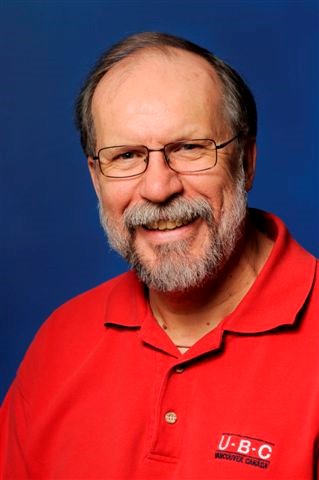
Dr. Neil Guppy (Department of Sociology) worked with Dr. David Tindall (Department of Sociology) on integrating more content on the environment and sustainability into introductory sociology (Sociology 100).
Patrick Robertson, Faculty of Education
Patrick Robertson (Department of Curriculum & Pedagogy) worked with Dr. Rob VanWynsberghe Department of Educational Studies) to develop the Sustainability Learning Pathway in Teacher Education at UBC.
Rob VanWynsberghe, Faculty of Education

Dr. Rob VanWynsberghe (Department of Educational Studies) worked with Patrick Robertson (Department of Curriculum & Pedagogy) to develop the Sustainability Learning Pathway in Teacher Education at UBC.
Tamar Milne, Sauder School of Business
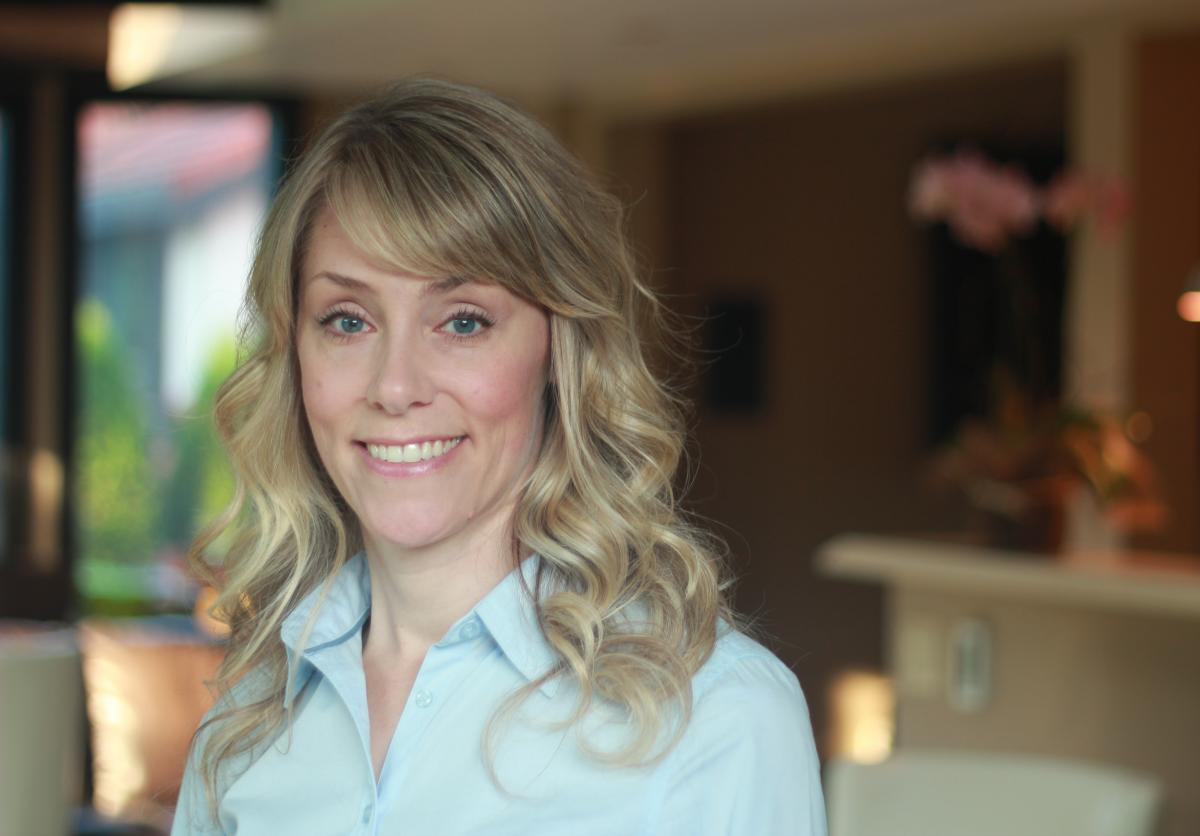
Tamar Milne worked to develop a Sustainability Pathway and three new Sustainability Concentration elective courses for the BCom program at Sauder.
2015-16 Sustainability Fellows
Brett Eaton, Faculty of Arts
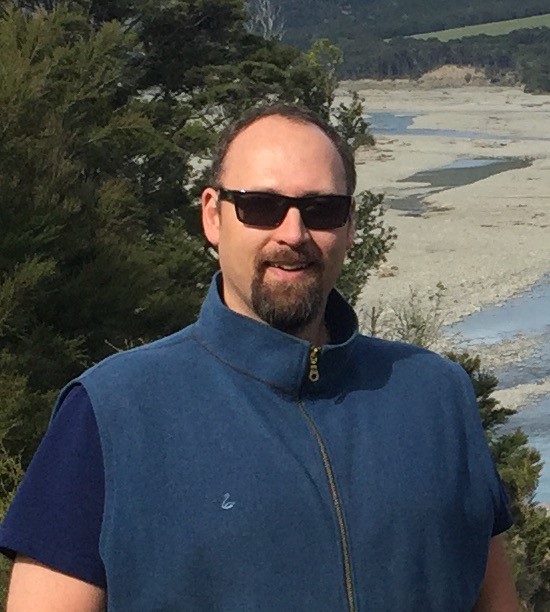
Dr. Brett Eaton (Department of Geography) developed a Geography Sustainability Learning Pathway, a sustainability-related assemblage of courses to serve students in existing B.A. and B.Sc. specializations offered by the Department of Geography.
David Tindall, Faculty of Arts

Dr. David Tindall (Department of Sociology) worked with Dr. Neil Guppy (Department of Sociology) on integrating more content on the environment and sustainability into introductory sociology.
Naoko Ellis, Faculty of Applied Science
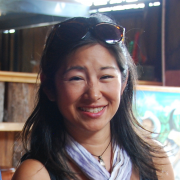
Dr. Naoko Ellis (Department of Chemical and Biological Engineering) worked with Dr. Susan Nesbit (Department of Civil Engineering) to develop a APSC Sustainability Pathway Initiative, is a collection of sustainability-oriented courses and experiences that students pursue alongside their disciplinary major.
Neil Guppy, Faculty of Arts

Dr. Neil Guppy (Department of Sociology) worked with Dr. David Tindall (Department of Sociology) on integrating more content on the environment and sustainability into introductory sociology (Sociology 100).
Susan Nesbit, Faculty of Applied Science
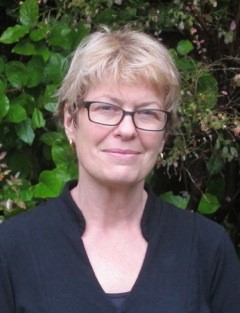
Dr. Susan Nesbit (Department of Civil Engineering) worked with Dr. Naoko Ellis (Department of Chemical and Biological Engineering) to develop an APSC Sustainability Pathway Initiative, a collection of sustainability-oriented courses and experiences that students pursue alongside their disciplinary major.
Tamar Milne, Sauder School of Business

Tamar Milne worked to develop a Sustainability Pathway and three new Sustainability Concentration elective courses for the BCom program at Sauder.
Tara Ivanochko, Faculty of Science

Dr. Tara Ivanochko (Department of Earth, Ocean and Atmospheric Sciences) developed a Sustainability Pathway for students in Environmental Science and Geology, two different specializations offered by the Department of Earth Ocean and Atmospheric Sciences.
2014-15 Sustainability Fellows
Brett Eaton, Faculty of Arts

Dr. Brett Eaton (Department of Geography) developed a Geography Sustainability Learning Pathway, a sustainability-related assemblage of courses to serve students in existing B.A. and B.Sc. specializations offered by the Department of Geography.
Charles Menzies, Faculty of Arts
Dr. Charles Menzies (Department of Anthropology) developed and integrated Indigenous practices from the Gitxaala Nation into a course on the anthropological approaches to ecological knowledge.
Eric Cytrybaum, Faculty of Science
Dr. Eric Cytrynbaum (Department of Mathematics) developed new content for an introductory math course to include sustainability elements distributed throughout the course textbook and associated homework problems.
Juanita Sundberg, Faculty of Arts
Dr. Juanita Sundberg (Department of Geography) expanded and enhanced an upper-level geography course focused on social movements in the Americas, focusing on sustainability struggles related to mining in Guatemala.
Naoko Ellis, Faculty of Applied Science

Dr. Naoko Ellis (Department of Chemical and Biological Engineering) worked with Dr. Susan Nesbit (Department of Civil Engineering) to develop a APSC Sustainability Pathway Initiative, is a collection of sustainability-oriented courses and experiences that students pursue alongside their disciplinary major.
Neil Guppy, Faculty of Arts

Dr. Neil Guppy (Department of Sociology) worked with Dr. David Tindall (Department of Sociology) on integrating more content on the environment and sustainability into introductory sociology (Sociology 100).
Susan Nesbit, Faculty of Applied Science

Dr. Susan Nesbit (Department of Civil Engineering) worked with Dr. Naoko Ellis (Department of Chemical and Biological Engineering) to develop an APSC Sustainability Pathway Initiative, a collection of sustainability-oriented courses and experiences that students pursue alongside their disciplinary major.
Tara Ivanochko, Faculty of Science

Dr. Tara Ivanochko (Department of Earth, Ocean and Atmospheric Sciences) developed a Sustainability Pathway for students in Environmental Science and Geology, two different specializations offered by the Department of Earth Ocean and Atmospheric Sciences.
2013-14 Sustainability Fellows
Daniel Roehr, School of Applied Science
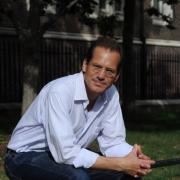
Daniel Roehr (School of Architecture and Landscape Architecture) researched LID dissemination strategies, focusing specifically on communicating and addressing the positive environmental and monetary value of LID technology on urban stormwater management.
David Tindall, Faculty of Arts

Dr. David Tindall (Department of Sociology) worked with Dr. Neil Guppy (Department of Sociology) on integrating more content on the environment and sustainability into introductory sociology.
Don Krug, Faculty of Education

Don was a Professor in the Faculty of Education and his research was organized around the complex relationships of education (curriculum, pedagogy, cognition, and policy), technologies (emerging media and popular culture and information and communication technology integration); culture (identity, place, aesthetics); communication (language, representation, social networking, simulations, visualization); sustainability (ecologies, economics, societies, and cultures) and social justice (equity, democracy, affirmation and activism). He studied and developed ways to bring these interconnected domains of knowledge into educational settings for pragmatic and critical inquiry by K-12 teachers, students and post-secondary researchers, for example, developing pedagogical communication strategies to identify and study the intertextual meanings of "greenwashing" and how and why nature is sometimes used deceptively to market commercial products as environmentally friendly such as a soft drink machine covered with the image of a rainforest. Dr. Krug passed away in 2017. In Memoriam
Jedediah Brodie, Faculty of Science
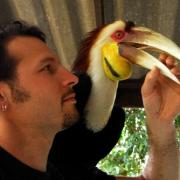 Dr. Jedediah Brodie (Department of Botany) developed fieldtrips to assess sustainability initiatives in B.C. and online resources for a course on conservation biology.
Dr. Jedediah Brodie (Department of Botany) developed fieldtrips to assess sustainability initiatives in B.C. and online resources for a course on conservation biology.
Kate White, Sauder School of Business
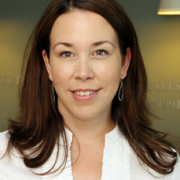
Dr. Kate White (Sauder School of Business) updated the material and content for a sustainable marketing course.
Loch Brown, Faculty of Arts
Dr. Loch Brown (Department of Geography) revised and retooled one of the first-year geography courses to better reflect the 21st century environmental issues and learning environments.
Naoko Ellis, Faculty of Applied Science

Dr. Naoko Ellis (Department of Chemical and Biological Engineering) worked with Dr. Susan Nesbit (Department of Civil Engineering) to develop a APSC Sustainability Pathway Initiative, is a collection of sustainability-oriented courses and experiences that students pursue alongside their disciplinary major.
Tara Ivanochko, Faculty of Science

Dr. Tara Ivanochko (Department of Earth, Ocean and Atmospheric Sciences) developed a Sustainability Pathway for students in Environmental Science and Geology, two different specializations offered by the Department of Earth Ocean and Atmospheric Sciences.
2012-13 Sustainability Fellows
Alejandro Rojas, Faculty of Land and Food Systems
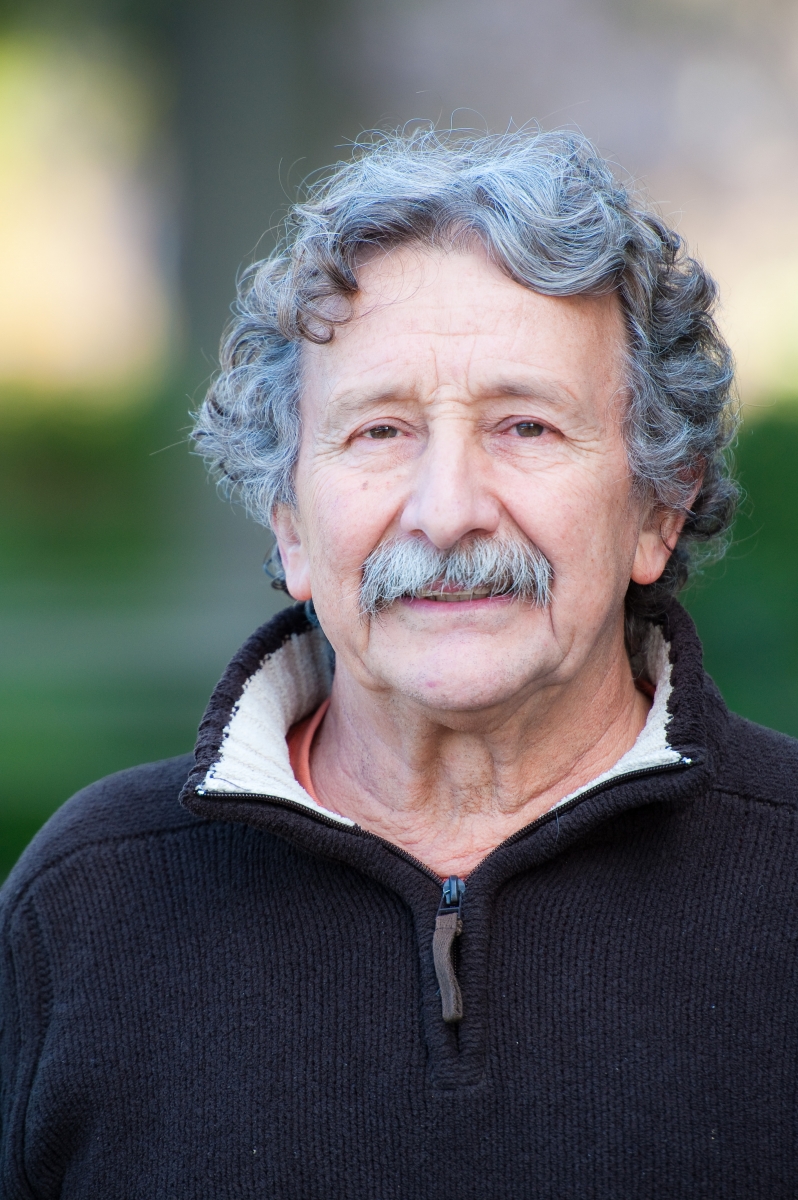
Alejandro was an Associate Professor at the Faculty of Land and Food Systems, where he taught for nearly 20 years and was one of the two founders of the Graduate Program in Integrated Studies in Land and Food Systems. Originally from Chile, he held a PhD in Sociology and conducted postdoctoral research in Ecological Anthropology on sustainable rural communities in Latin America. His greatest academic greatest passion was sustainability education. Alejandro was the Principal Investigator of Think & EatGreen @ School, a community-based action research project housed at UBC supported by SSHRCC (2010-15), involving 30 co-investigators from the university, public schools, the food, public health and environment communities, promoting change in what students eat, learn, and do at elementary and high schools in relation to food, health, the environment, and sustainability.
Alejandro was also the Principal Investigator on two projects on food security and sustainability in the city of Vancouver (2000-2008) and at UBC campus, the UBC Food System Project (2002-2009). He was a Co-Investigator on a Social Science and Humanities Research Council of Canada’s International Major Collaborative Research Initiative on Institutional Adaptations to Climate Change (2004-2009) and was a member of the leading team of a Canadian-Chilean project about Vulnerability and Adaptation in Rural Communities to Climate Change and Water Scarcity (2004-2009). Alejandro led a 4-year Chilean-Canadian research project on Adaptive Environmental Conflict Resolution. He was also an Associate Researcher with a CIDA Tier 1 project on Eco-system Approach to Health inn Ecuador involving teams from UBC and three public universities from Ecuador. He inspired many students to think differently about food system issues through developing systems thinking competencies, interdisciplinary collaboration, and community- based experiential learning. Dr. Rojas passed away in 2018. His passion, vision, and leadership in teaching, research, and community engagement will always be missed.
Andrew Riseman, Faculty of Land and Food Systems
Dr. Andrew Riseman (Applied Biology and Plant Breeding) developed content for a sustainability course, supporting the pathways leading to a Sustainability minor, and continuing efforts to integrate the UBC Farm into both these projects.
Don Krug, Faculty of Education

Don was a Professor in the Faculty of Education and his research was organized around the complex relationships of education (curriculum, pedagogy, cognition, and policy), technologies (emerging media and popular culture and information and communication technology integration); culture (identity, place, aesthetics); communication (language, representation, social networking, simulations, visualization); sustainability (ecologies, economics, societies, and cultures) and social justice (equity, democracy, affirmation and activism). He studied and developed ways to bring these interconnected domains of knowledge into educational settings for pragmatic and critical inquiry by K-12 teachers, students and post-secondary researchers, for example, developing pedagogical communication strategies to identify and study the intertextual meanings of "greenwashing" and how and why nature is sometimes used deceptively to market commercial products as environmentally friendly such as a soft drink machine covered with the image of a rainforest. Dr. Krug passed away in 2017. In Memoriam
Gregory Dake, Faculty of Science
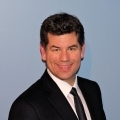
Dr. Gregory Dake (Department of Chemistry) developed sustainability content for a first-year structural chemistry course to make direct, and specific connections between chemistry, society and the world at large.
Peter N. Nemetz, Sauder School of Business
Dr. Peter Nemetz contributed to producing a roadmap for moving to sustainability and explored various options for including sustainability into curriculum in various faculties.
Tara Ivanochko, Faculty of Science

Dr. Tara Ivanochko (Department of Earth, Ocean and Atmospheric Sciences) developed a Sustainability Pathway for students in Environmental Science and Geology, two different specializations offered by the Department of Earth Ocean and Atmospheric Sciences.
2011-12 Sustainability Fellows
Andrew Riseman, Faculty of Land and Food Systems
Dr. Andrew Riseman (Applied Biology and Plant Breeding) developed content for a sustainability course, supporting the pathways leading to a Sustainability minor, and continuing efforts to integrate the UBC Farm into both these projects.
Anneliese Schultz, Faculty of Arts
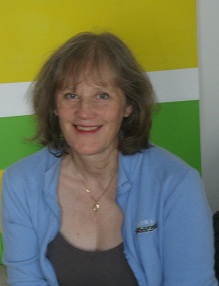
Dr. Annelise Schultz (School of Creative Writing) developed assignments and activities to incorporate sustainability themes in a first-year Italian course in ways that complemented language teaching.
Eric Mazzi, Faculty of Applied Science
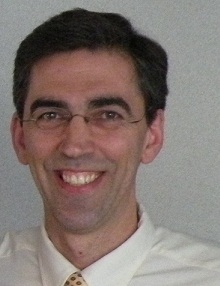
Dr. Eric Mazzi (UBC Clean Energy Research Centre) worked to advance and expand sustainability in the Clean Energy Engineering program and other engineering courses.
Erica Frank, Faculty of Medicine
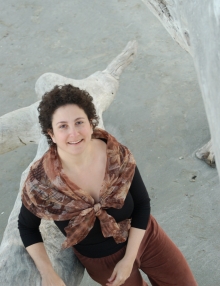
Dr. Erica Frank (School of Population and Public Health) developed a climate change & public health course, and modules from this new course will be incorporated into a sustainability course.
Kurt Grimm, Faculty of Science
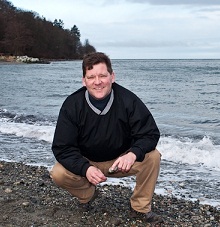
Kurt Grimm was an associate professor in the Department of Earth and Ocean Sciences at the University of British Columbia. From his foundations in Earth systems science and applied ecology, he was interested in the origins of patterning in the real world and was developing a simple unified description of phenomena in the natural world that delivered broad explanatory power and explicit testability. Topics of interest included self-organizing complexity, environmental and planetary Earth sciences, transformative sustainability learning and A Unified Description of Life (AUDOL). Conceptual and teaching innovations arising inform Life, health, climate and sustainability sciences. Dr. Grimm passed away in 2016. In Memoriam
Laurel Schafer, Faculty of Science
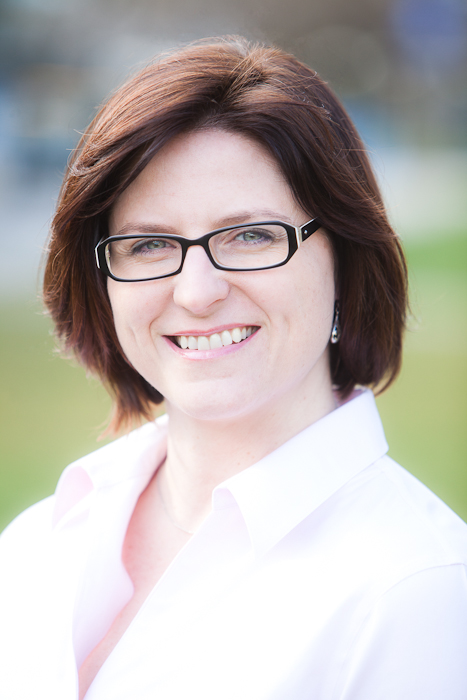
Dr. Laurel Schafer (Department of Chemistry) contributed to the creation and teaching of the pilot version of Sustainability 101: Introduction to Sustainability.
Mark Johnson, Institute for Resources, Environment and Sustainability

Dr. Mark Johnson contributed to the creation and teaching of the pilot version of Sustainability 101: Introduction to Sustainability.
Ron Kellett, Faculty of Applied Science
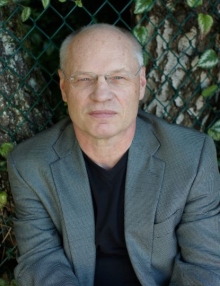
Ron Kellet (School of Architecture and Landscape Architecture) contributed to developing the piloted Sustainability 101 course and worked on the Regenerative Neighbourhoods initiative.
Stephen Sheppard, Faculty of Forestry

Dr. Stephen Sheppard (Department of Forest Resources Management) developed tools and processes for engaging communities on climate change impact and solutions (mitigation and adaptation), as well as exploring how to apply climate visioning methods to participatory planning and university curricula.
2010-11 Sustainability Fellows
Andrew Riseman, Faculty of Land and Food Systems
Dr. Andrew Riseman (Applied Biology and Plant Breeding) developed content for a sustainability course, supporting the pathways leading to a Sustainability minor, and continuing efforts to integrate the UBC Farm into both these projects.
Erica Frank, Faculty of Medicine

Dr. Erica Frank (School of Population and Public Health) developed a climate change & public health course, and modules from this new course will be incorporated into a sustainability course.
Gary Bradfield, Faculty of Science
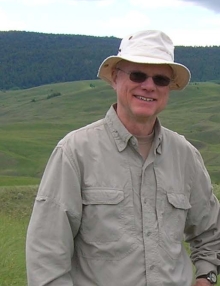
Dr. Gary Bradfield (Department of Botany) led an effort to integrate sustainability into the curriculum of a first-year sustainability science option.
Rob VanWynsberghe, Faculty of Education
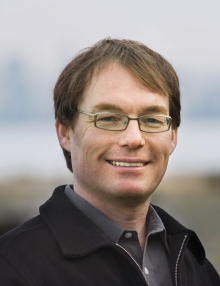
Dr. Rob VanWynsberghe (Department of Educational Studies) developed a new sustainability minor in the Faculty of Education entitled “UBC Beyond the Classroom: An Immersive Pathway for Sustainability and Community Engagement”.
Ron Kellett, Faculty of Applied Science

Ron Kellet (School of Architecture and Landscape Architecture) contributed to developing the piloted Sustainability 101 course and worked on the Regenerative Neighbourhoods initiative.
Susan Nesbit, Faculty of Applied Science
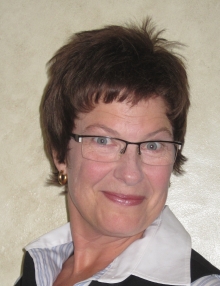
Dr. Susan Nesbit (Department of Civil Engineering) contributed to advancing sustainability education into UBC degree programs and developed a sustainability pathway for the undergraduate applied science program.
